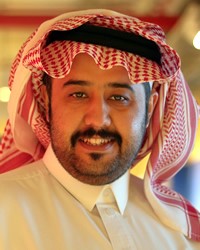Arab, Saudi - Najdi in Oman

Photo Source:
Copyrighted © 2026
Sam Nord - Shutterstock All rights reserved. Used with permission |
Send Joshua Project a map of this people group.
|
| People Name: | Arab, Saudi - Najdi |
| Country: | Oman |
| 10/40 Window: | Yes |
| Population: | 46,000 |
| World Population: | 13,254,900 |
| Primary Language: | Arabic, Najdi |
| Primary Religion: | Islam |
| Christian Adherents: | 0.00 % |
| Evangelicals: | 0.00 % |
| Scripture: | Portions |
| Ministry Resources: | No |
| Jesus Film: | No |
| Audio Recordings: | Yes |
| People Cluster: | Arab, Arabian |
| Affinity Bloc: | Arab World |
| Progress Level: |
|
Introduction / History
Najdi Arabs are a good example of how Arabs and Bedouins overlap. We often talk about "Bedouin Arabs." In simplistic terms, the difference between Arabs and Bedouins usually has to do with lifestyle. Bedouins are Arabs with a nomadic lifestyle, but they often speak one of the "Arabic" languages such as Nadji. The Najdi form of Arabic is among the most prestigious since it is closer to the classical Arabic of the Koran, the Muslim holy book than other Arabic languages.
This Arabic language is mainly spoken in central Saudi Arabia, but also in the other countries of the Arabian Peninsula such as Qatar and Kuwait. Some speak Najdi in Syria, Jordan, and especially Iraq. There are smaller numbers of Najdi speakers in the Netherlands, Canada, and the United States.
What Are Their Lives Like?
Najdi speakers usually live as Bedouin nomads and fall into one of two basic social classes. One class is known as the "true" Bedouin, and they live as nomadic herdsmen. The other group has embraced farming and is known as the fellahin. The fellahin lead a more settled life on the edge of the desert. They move into the desert during the rainy winter seasons and back to the desert's edge during the hot, dry summers. Those who live as Bedouins must deal with a harsh environment. To endure the extreme heat of the desert, the Najdi wear lightweight, light-colored clothing. It is very loose-fitting, allowing for the circulation of air. They have no permanent homes, but live in portable, black tents made from woven, goat hair. The tents are divided by a decorative partition called a gata. Half of the tent is for the women, children, cooking utensils, and storage. The other half contains a fireplace and is used for entertaining. The women do most of the work, while the men socialize and make plans for the group.
The material culture of these Bedouins is very limited. Their tents are their main possessions, and animals are very important for their nomadic lifestyle. Camels are their main means of transportation, and they buy and sell sheep and goats.
Dairy products are their main food source. They turn the milk from camels and goats into yogurt and butter. Most of their meals consist of a bowl of milk, yogurt, or rice. When available they eat round loaves of unleavened bread. Those fortunate enough to find dates in the desert oases eat those as dessert. They only eat meat on special occasions such as marriage feasts, ceremonial events, or when guests are present.
Although Bedouin Arabs once considered it degrading to hold manual labor jobs, this has changed in recent years. Due to the need for better health care, more money, and better living conditions, some have accepted wage-paying jobs. However, most of them despise this type of work, partly because it means they are moving away from their Bedouin roots.
What Are Their Beliefs?
Islam is the backbone of Bedouin Arab culture and religion. They are Sunni Muslims, who believe the Koran is the final word of Allah, and Mohammed is the final prophet. On a daily basis, however, they rely on spiritual forces, charms and amulets. Almost none of the Bedouin groups have accepted Christ for a couple of reasons. They are a Muslim culture, and no other spiritual beliefs are tolerated. It is also very difficult for Christ's ambassadors to reach nomads who live in the hot, dry desert. Few are willing or able to take this huge step.
What Are Their Needs?
Bedouin Arabs like the Najdi speakers need to learn modern skills as water is increasingly difficult to find in their homeland. If they are going to get modern health care and useful education for the next generation, they will need to make changes.
Prayer Points
Pray for Najdi Arabs in Oman to find ways to get adequate health care and education.
Pray for the Najdi Arabs to have a hunger and thirst for righteousness that will drive them to find the Prince of Peace.
Pray for the Lord to reach Najdi Arabs through dreams and visions.
Pray for the Lord to thrust out hearty disciples, who will show these people the way to the cross and the empty grave.
Pray for an unstoppable movement to Christ among the Najdi Arabs in Oman.